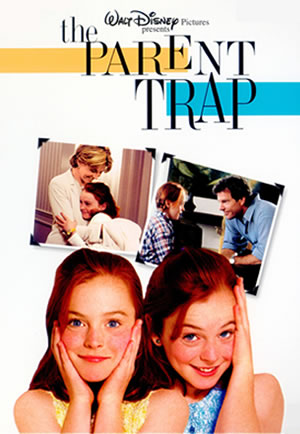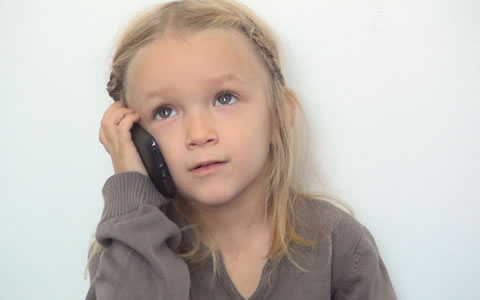The following essay, by Doug Mainwaring, originally appeared at Public Discourse: Ethics, Law and the Common Good and has been reprinted with permission. The original post can be viewed here >>
This world does not need men to selfishly take whatever we want, especially if the price is the welfare of our children. Our children don’t need superheroes—just quiet, unsung, ordinary, everyday heroes who answer to the name “Daddy.”
When I was taking my first few steps out of the closet in the late 1990s, a guy who called himself Tex offered me a short version of his life story over drinks at a Dupont Circle bar. The conversation took an unanticipated turn: he explained that his current partner had moved halfway across the country, leaving behind an ex-wife and kids. Tex would sometimes answer the house phone (this was before cell phones) and would hear a small voice cautiously ask, “May I please speak to my Daddy?” This was his partner’s eight-year-old daughter calling from somewhere in the Rocky Mountains. Tex said that it troubled him deeply that his partner’s daughter had to ask permission of a stranger in order to speak with her daddy.
When I think of this little girl, my thoughts drift to folks like Alana Newman and others who have anonymous sperm donors for fathers, many of whom have daily asked that same question in their hearts. May I please speak to my Daddy?
When I started speaking out about the dangers of same-sex marriage for children, I found it difficult to get proponents of genderless marriage to engage in intellectually honest one-on-one discussions. Then I realized: at least half the people who wanted to clobber me with bumper sticker slogans were products of broken marriages.
In early 2013, following my participation in a panel discussion, a young man accused me of being unfair to gays, lesbians, and their children. So I took a chance and asked him point blank: “Did your parents divorce when you were a child?”
He was a little stunned by the personal question, but he answered, “Yes.” The smugness left his face.
“Did you live with your mother?”
“Yes.”
“Did you see much of your father?”
“No. I almost never saw him.”
“Did you miss him? Did you wish you could be around him more?”
“Yes. Of course,” he answered, with a bit of wistfulness.
“Did your parents’ divorce increase your happiness—or your sadness?”
“Sadness.”
“So your parents dismantled your home and set up two new structures that put their needs first, not yours. In fact, they were structures guaranteeing your continued unhappiness. You learned to live with it, because as a child you had no control whatsoever over their actions, but these new structures weren’t necessarily built with your best interest in mind.”
“Well, no. I didn’t get to vote on the matter. I was a kid.”
“Exactly. So why would it be different for children of gays and lesbians who are denied either their father or mother? Do you really think two moms or two dads is exactly the same as having both mom and dad around to love and care for you? Seriously? Would having an extra mom around the house really have satisfied you, or would you still have an unanswered yearning in your heart for your Dad?”
“I see.”
“Then why would you want to condemn other children to be fatherless? Or motherless?”
He got it. He didn’t like it, but he got it—and then he walked away. I have no idea if he changed his mind, but at least he had finally actually heard and listened to an opposing point of view—one that resonated with him.
As I walked away, I thought to myself, “To be intellectually honest, I can’t keep speaking publicly against the dangers of genderless marriage without also simultaneously speaking about the objective evil of divorce for kids.” Divorce is an exponentially larger, far more pervasive threat to children than the prospect of gays raising children without moms and lesbians raising children without dads. I sighed. There is a lot to undo and set straight.
The Prodigal Dad

After my wife and I had been divorced for a few years, it was not unusual for her to call and ask me to drive to her house because our youngest son was out of control. When I would arrive, I found turmoil. He had gotten angry about something, and that had triggered a rage completely disproportionate to the issue. He would yell and scream and kick, then isolate himself in his bedroom. No trespassers allowed. It was gut-wrenching to witness this. Thankfully, he would calm down after a while and return to normal.
His rage would, in turn, trigger discussions with my ex-wife. What were we going to do about his behavioral problem? Did he require medication? Did he need to be spanked? Did he need psychological help?
After this happened a few times it became abundantly clear to me exactly what he needed. Our son did not have a behavioral problem. He needed just one thing: he needed his parents to get back together and to love each other. The slicing and dicing of our family had thrust unbearable stress on this four-year-old’s tender psyche. His Dad and Mom were the culprits responsible for this, yet we were approaching this as if it were his problem.
Our little boy bore no blame, but I sure did.
It took a few more years for my ex-wife and me to fully come to our senses. In the meantime, our kids came to live with me. This was not a solution, it was simply a stopgap means of de-escalating an uncomfortable situation. While this solved some problems, it created others and remained a wholly unsatisfying answer.
To justify remaining divorced and maintaining two households, we adults were enforcing a charade, demanding everyone else around us—especially our own children—pretend that our selfish pursuits and our inability to “work things out” were just fine. In reality, we had done nothing more than slough off our problems and dysfunction on our kids. We were alleviating our own stresses by heaping them on our children.
Wonderfully, after a dozen years, we finally dropped the pretense and are once again husband and wife, married with children. There has been a lot of healing since then, some of which has been a complete surprise. And we’ll never know what additional potential difficulties our kids have been spared.
A Lesson from Hollywood
Never before in history have children been born with the explicit purpose of being deprived of either a mom or a dad. Yet children who are brought into this world to satisfy the wants of gay and lesbian couples enter the world in exactly this way. They live with the knowledge that one of their biological parents will remain forever an enigma, a phantom.
Until recently, children were viewed as a pure gift from God. Now new laws undefining marriage are producing the sad result of undefining children as well, reducing them to chattel-like sources of fulfillment. On one side, their family tree consists not of ancestors, but of a small army of anonymous surrogates, donors, and attorneys who pinch-hit for the absent gender in genderless marriages.

Though it may seem a strange source, the 1998 Disney movie The Parent Trap (a remake of the 1961 classic starring Hayley Mills) can teach us a lot about kids growing up with two gay dads or two lesbian moms.
In the movie, two girls who look remarkably alike, Hallie Parker and Annie James, bump into each other at an exclusive New England summer camp. They soon discover that they are twins who were separated shortly after birth, and they concoct a scheme to switch identities and trade places. Each so desperately wants to meet her missing parent that she is willing to change appearance, hairstyle, mannerisms, voice, and accent and to move to a foreign country just to have a few surreptitious, stolen days with the mom or dad for whom she longs.
Hallie lives with her dad in California wine country in a beautiful hillside mansion with a swimming pool and stables. She has a handsome dad who is a fabulously successful vintner. In short, she has everything—but she still yearns for the mom who has been denied her. Meanwhile, Annie lives in a mansion in a posh London suburb. Her beautiful mom is a world-famous dress designer. She has servants to wait on her and a chauffeur-driven Rolls-Royce at her disposal. Yet Annie likewise yearns for the dad who has been denied her.
Both these girls lead enviable fairytale lives. But viewers watching this film, the majority of whom enjoy far less material wealth and security, feel sorry for both girls, because each is missing a parent. This irony is precisely the point of the movie.
It’s interesting, too, that Hallie’s aunt lives in the home and serves as a sort of surrogate mother figure, while Annie’s maternal grandfather lives with her and her mom, serving as a paternal figure for Annie. Even though both these wonderful, upbeat, loving single-parent households have a closely related, caring family member of the opposite sex present, a Grand-Canyon-sized hole persists in Annie’s and Hallie’s hearts.
In the movie, adults are responsible for dividing children. In the case of children produced for genderless marriage, adults are responsible for depriving them. Deprivation is permanently, irrevocably etched into the hearts and souls of human beings created for genderless marriages. Children who are engineered for gay marriages face impoverished lives from the day they are born, as two men snatch a baby from their rented surrogate’s womb, denying their child perhaps the only opportunity he or she might have had to experience a mother’s embrace. This missed opportunity is as close as their child will ever have come to touching someone who is, sort of, their mom.
As she grows older, her yearning for mom will be dismissed, hushed, laughed away, and not taken seriously. After all, dad sees no need for a woman in his life. Why should his little girl or boy? To yearn for a mom becomes an insult to the wifeless man or male couple raising her. Better to suffer in silence than risk upsetting dad or dads by bringing up the greatest of taboo subjects.
Each one of us needs to thoroughly think through the unintended, unconsidered consequences that lurk—or are purposely obscured—behind our acceptance of genderless marriage, and more importantly, our society’s continued shrug of the shoulders over both divorce and single-parenting. We adults yawn when it comes to these issues. Children everywhere have a different response: they cry themselves to sleep.
When It Comes to Fatherhood, Men Need to Be Men
Men who divorce, men who marry other men in order to raise children, or who anonymously sell their sperm—all follow in Esau’s footsteps. Except it is not our own birthrights we are trading for a mere bowl of soup. It is our children’s. We do so callously, selling their greatest treasure—growing up with their biological parents, with an intact biological family—very cheaply.

This world does not need us men to selfishly take whatever we want, especially if the price is the welfare of our children. Men are supposed to do the opposite: men are meant to protect their children from unhappiness, loneliness, and other threats. Real men don’t victimize their own children for their own benefit. They protect, they shield, absorbing stress and hardship rather than deflecting it onto their children. Men stand in the breach.
When it comes to fatherhood, our culture needs men to be men. For some, that may mean relinquishing certain dreams or our own yearnings. More and more, our culture is dominated by men who are self-interested and cowardly. C.S. Lewis would tell us we are a generation of men without chests.
Pope Saint John Paul II informed us, “Original sin attempts, then, to abolish fatherhood, destroying its rays which permeate the created world, placing in doubt the truth about God who is Love” (emphasis his). During this current age, marriage, family, and even gender are undermined in every conceivable way, and fatherhood in particular is under relentless, violent attack. It is up to us men to courageously fight back.
Our children deserve better. They don’t need superheroes; just quiet, unsung, ordinary, everyday heroes who answer to the name “Daddy”—not spoken over a phone, but whispered into our ears as they safely and contentedly rest in our arms.









0 Comments